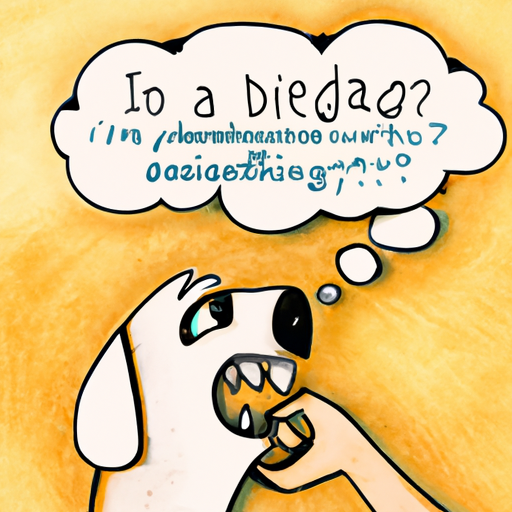“`
Why Do Dogs Bite Owners Hands?
Understanding Canine Behaviour
Understanding your dog’s behaviour is key in nurturing a healthy and positive relationship. Dogs communicate in a variety of ways, from wagging tails to barks and bites. When your dog bites your hand, it’s not always an act of aggression. It may be a form of communication, an invitation to play, or a manifestation of anxiety.
- Communication: Dogs communicate physically. A gentle nibble could be their way of saying they want attention or affection.
- Playfulness: Dogs often use their mouths during play. A bite doesn’t necessarily mean aggression, it could just be your dog’s invitation to a game.
- Anxiety: Dogs may bite out of fear or anxiety. It is crucial to understand the signs of distress in your dog to avoid such situations.
Why Negative Reinforcement Doesn’t Work
Negative reinforcement, such as shouting or physical punishment, can often make the situation worse. It may scare your dog, leading to more biting out of fear. Instead, try using positive reinforcement techniques like:
- Rewarding good behavior with treats or praise.
- Ignoring unwanted actions.
- Providing chew toys as an alternative.
The Role of Training
Training is an essential tool in curbing unwanted biting. Remember, consistency is key. Here’s a basic outline of a training plan:
| Step | Method |
|---|---|
| 1 | Redirect biting to a toy |
| 2 | Use commands like ‘No bite’ |
| 3 | Reward non-biting behavior |
| 4 | Gradually increase hand play |
The Importance of Socialization
Socialization exposes your dog to a variety of experiences, reducing their anxiety in new situations. This can greatly lessen the chance of fear biting. Here are some tips to socialize your dog:
- Introduce them to new people and places frequently.
- Let them interact with other dogs regularly.
- Use praise and treats to reinforce good behavior during these interactions.
When to Seek Professional Help
If your dog continues to bite, it could be a sign of a deeper behavioral issue. In this case, consider seeking help from a professional dog trainer or behaviorist. They can provide a personalized plan that will address the root cause of the biting.
FAQs
Q: Is it normal for puppies to bite?
A: Yes. Puppies explore the world with their mouths, so it’s normal for them to bite. However, it’s important to teach them bite inhibition early on.
Q: Can certain breeds be more prone to biting?
A: No. Biting is not breed-specific, it’s more about individual temperament and experience.
Q: How can I tell if my dog is play biting or being aggressive?
A: Play biting is usually less intense and accompanied by other playful behaviors. Aggressive biting is typically harder and may be accompanied by growling or barking.
“`



